
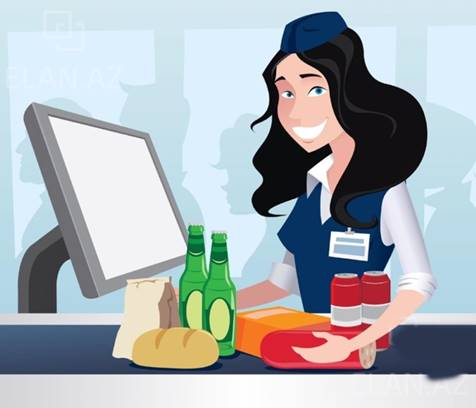

Contents
1 Chapter “Shopping” 5
Shopping 5
At the grocery store 9
At the clothing department store 11
Shopping the clothes 12
2 Chapter “Introduction to a profession” 17
Shopping in Great Britain 17
Shopping in the USA 20
Shopping in Russia 22
Household goods 24
How to shop sensibly 26
At the grocery. Shopping for one 29
At the clothing store 32
Buying shoes and clothes 36
Список использованных источников 38
CHAPTER “SHOPPING”
Text: Shopping
When we want to buy something, we go to a shop. There are many kinds of shops in every town or city, but most of them have a food supermarket, a department store, men's and women's clothing stores, grocery, a bakery and a butchery.
I like to do my shopping at big department stores and supermarkets. They sell various goods under one roof and this is very convenient. A department store, for example, true to its name, is composed of many departments: readymade clothes, fabrics, shoes, sports goods, toys, electric appliances, cosmetics, curtains, cameras, records, etc. You can buy everything you like there.
 There
are also escalators in big stores which take customers to different floors. The
things for sale are on the counters so that they can be easily seen. In the
women's clothing department you can find dresses, costumes, blouses, skirts,
coats, beautiful underwear and many other things. In the men's clothing
department you can choose suits, trousers, overcoats, ties, etc.
There
are also escalators in big stores which take customers to different floors. The
things for sale are on the counters so that they can be easily seen. In the
women's clothing department you can find dresses, costumes, blouses, skirts,
coats, beautiful underwear and many other things. In the men's clothing
department you can choose suits, trousers, overcoats, ties, etc.
In the knitwear department one can buy sweaters, cardigans, short-sleeved and long-sleeved pullovers, woollen jackets. In the perfumery they sell face cream and powder, lipstick, lotions and shampoos.
|
Sales assistant with customer in clothing store |
In a food supermarket we can also buy many different things at once: sausages, fish, sugar, flour, tea. At the butcher's there is a wide choice of meat and poultry. At the bakery you buy brown and white bread, rolls, biscuits.
Another shop we frequently go to is the greengrocery which is stocked by cabbage, potatoes, onions, cucumbers, carrots, green peas and what not. Everything is sold here ready-weighed and packed. If you call round at a dairy you can buy milk, cream, cheese, butter and many other products.
The methods of shopping may vary. It may be a selfservice shop where the customer goes from counter to counter selecting and putting into a basket what he wishes to buy. Then he takes the basket to the check-out counter, where the prices of the purchases are added up. If it is not a self-service shop, and most small shops are not, the shop-assistant helps the customer in finding what he wants. You pay money to the cashier and he gives you back the change.
Exercise 1: Guess the meaning of the following international words:
Shopping, supermarket, cosmetics, camera, escalator, costume, blouse, sport, sweater, cardigan, pullover, jacket, perfumery, cream, shampoo
Exercise 2: Give the English equivalents for the words below:
Универмаг, бакалейная лавка, булочная, мясная лавка, товары, покупатель (клиент), прилавок, овощная / фруктовая лавка, в расфасованном виде, в упакованном виде, молочный магазин, магазин самообслуживания, продавец-консультант, кассир, сдача
Exercise 3: Complete the sentences using the text:
1. There are many kinds of shops…
2. A department store, for example…
3. The things for sale…
4.  In the
women's clothing department…
In the
women's clothing department…
5. In the men's clothing department…
6. In the knitwear department…
7. In the perfumery…
8. In a food supermarket…
9. At the butcher's…
10. At the bakery…
Exercise 4: Answer the questions:
1. What do we do when we want to buy smth?
2. What kinds of shops are there in every town?
3. Where do you like to do your shopping?
4. What departments is a department store composed of?
5. Where are the things for sale?
6. What can we buy in the knitwear department?
7. What can we buy in a food supermarket?
8. What methods of shopping are there?
9. Are there many departments in the department store?
10. What are they?
Talking about shopping:
1. How often do you go shopping?
2. Do you often buy groceries / clothes / cosmetics / electronic devices?
3. Do you know any tricks that shops use to make people buy more?
4. Are you sometimes taken in by these tricks?
5. Do you do shopping on Sunday?
6. Do you think that all shops should be closed on Sunday?
7. Do you think that people often buy more than they need?
If so, what is the reason for that?
8. Do you sometimes buy more than you really need?
9. What can you do to prevent yourself from buying too much?
10. Do you buy branded goods? Why / why not?
11. Do you often buy goods advertised on TV?
Types of Shops
Pharmacy a shop or a part of a shop where medicines are prepared and sold
Butcher shop a shop in which you can buy meat, poultry and sometimes fish
Florist's a shop that sells flowers and plants
Dry cleaner's a shop where clothes are cleaned
Fishmonger's a shop that sells fish
Bookshop a shop in which newspapers, magazines, calendars etc. are sold
Greengrocer's a shop that sells fruit and vegetables
Gift shop a shop that sells goods which are suitable for giving as a present
Pet shop a shop where pet animals can be purchased
Department store a large shop divided into several different parts. It sells many different items
Grocery shop a shop in which food is sold
Bakery a place where bread, cookies and other baked food are sold
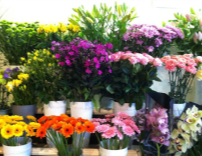

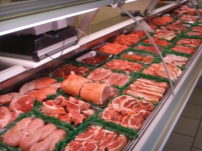 Exercise
1: Fill in the gaps using new words:
Exercise
1: Fill in the gaps using new words:
![]()
1. Would you go to the _______? Your mother has a headache and she needs some aspirin.
2. Yesterday, the milk I bought at the _______ had turned sour. I was pretty furious about it.
3. I bought this novel at the _______ opposite my school.
4. I went to the _______ to get some apples because I wanted to bake your favourite cake.
5. I want to buy some bread. Where is the nearest _______?
6. - My husband stained his suit. What should I do?
- Just take it to the _______.
7. Henry's son is a butcher. He started working at a _______ a few months ago.
8. The _______ still has yellow tulips for sale. You can buy some for your wife as a gift.
9. Could you go and get some flounder for supper at the _______?
10. - Where did you buy this funny parrot?
- My parents got it at the _______.
11. I would like to buy a souvenir for my mother. I am looking for a _______ near here.
12. Harrods is the greatest _______ in London.
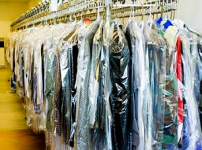
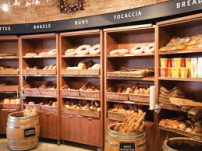
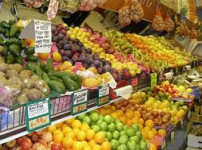
![]()
Exercise 2: Match the words in the columns:
Pharmacy bread meat pies
Butcher shop beef paper-clips pet food
Florist's birthday cards bunches of roses ham
Fishmonger's vegetables fish seafood
Bookshop pork aspirin evening dresses
Greengrocer's books parrots souvenirs
Gift shop medicine crabs posters
Pet shop kittens cakes soft toys
Department store flowers sausages pencils
Grocery shop fruit cookies shoes
Bakery puppies trendy clothes potatoes
Exercise 3: Find the articles of shops hidden in this grid:
|
F |
A |
F |
E |
F |
W |
P |
H |
A |
R |
M |
A |
C |
Y |
Z |
|
L |
B |
Т |
O |
I |
N |
L |
O |
D |
Q |
R |
K |
A |
G |
P |
|
O |
H |
O |
S |
S |
B |
V |
U |
A |
L |
U |
S |
H |
I |
E |
|
R |
E |
S |
X |
H |
D |
B |
K |
O |
I |
I |
C |
U |
F |
T |
|
I |
R |
K |
M |
M |
C |
X |
V |
D |
F |
G |
E |
I |
T |
S |
|
S |
D |
B |
O |
O |
K |
S |
H |
O |
P |
D |
U |
O |
S |
H |
|
T |
I |
Y |
P |
N |
J |
L |
N |
E |
T |
S |
H |
P |
H |
O |
|
S |
P |
A |
T |
G |
R |
O |
C |
E |
R |
Y |
S |
H |
O |
P |
|
K |
G |
R |
E |
E |
N |
G |
R |
O |
C |
E |
R |
S |
P |
Z |
|
B |
A |
K |
E |
R |
Y |
P |
A |
U |
V |
W |
P |
Q |
N |
M |
|
Q |
K |
U |
W |
S |
P |
A |
E |
T |
Y |
U |
I |
O |
G |
D |
|
Z |
B |
U |
T |
C |
H |
E |
R |
S |
H |
O |
P |
W |
R |
P |
|
D |
E |
P |
A |
R |
T |
M |
E |
N |
T |
S |
T |
O |
R |
E |
Exercise 4: Make a list of…
1. The shops in the street near you
2. The departments there are in your favourite department store.

Text: At the grocery store
Today Tara is going shopping. She is not shopping for fun things like clothes or shoes, but for some food for supper and things she needs around her house. This kind of shopping is for groceries so Tara goes to the grocery store. A shop is sometimes called a store. It's a good idea to make a shopping list before you go shopping so that you know what to buy. But Tara has forgotten to do this.
So Tara takes a shopping basket and goes to look at the snack bar. She doesn't want to buy any fast food which has been cooked at the store. Tara wants to look at the menu selection to get some ideas. Ah. She has seen something she likes – now she is going to the fruit and vegetable section to start shopping. At the fruit and vegetable section, she sees Matt. Matt has a shopping trolley (in America they call this a shopping cart) because he has a lot of shopping to do.
 While
Matt decides if he wants to buy some apples, Tara takes an iceberg lettuce, and
puts it in her shopping basket. The bakery section smells good! Look, there's
cookies, and cake and pie. Mmmm – why not have a fruit pie for dessert? Tara
puts the pie in her basket and goes to the dairy. Matt is already there, and he
has got a carton of fruit juice and a tub of ice cream. Tara looks at the
chilled goods while Matt goes down the aisle
While
Matt decides if he wants to buy some apples, Tara takes an iceberg lettuce, and
puts it in her shopping basket. The bakery section smells good! Look, there's
cookies, and cake and pie. Mmmm – why not have a fruit pie for dessert? Tara
puts the pie in her basket and goes to the dairy. Matt is already there, and he
has got a carton of fruit juice and a tub of ice cream. Tara looks at the
chilled goods while Matt goes down the aisle
A shopping trolley / shopping cart to pet supplies. His friend has asked him to get some pet food for his cat. Matt gets some cat food, and Tara takes a carton of milk for her coffee. Hmmm what next? Maybe something to go with the lettuce.
Tara goes to the canned food shelves, and looks at the tinned food. On the bottom shelf are cleaning materials for her clothes and for cleaning the kitchen, but Tara does not need any of these. She takes some bottled asparagus instead.
Now for some meat. Tara wants some cooked meat, so she goes to the delicatessen. She does not want seafood, but how about pizza or roast chicken? There is a ham on the butcher's scales, but Tara decides she will have the box of chicken nuggets which is also on the counter.
Well, that's all Tara needs! Now she has to pay for her shopping, so she goes to the nearest checkout. The woman rings up Tara's purchases at the till. The till shows Tara what she has bought and how much it will cost. Tara could use the card reader to pay with her debit card, but she decides that today she will pay in cash using money she has in the pocket of her jeans.
So Tara's shopping has been bagged. Now she is leaving with a lettuce, bottled asparagus and chicken nuggets for her meal. After that she will have a pie and some coffee with the milk she has just bought. Enjoy your meal Tara!
Exercise 1: Guess the meaning of the following international words:
Fast food, menu, idea, fruit, start, dessert, coffee, delicatessen, pizza, jeans
Exercise 2: Give the Russian equivalents for the words below:
Grocery / grocery store / store, shopping list, shopping basket, shopping trolley (брит.) / shopping cart (амер.), snack bar, fruit and vegetable section, bakery section, dairy, checkout, till, debit card, card reader, to pay in cash, aisle, to ring up
Exercise 3: Match the two halves of each expression:
1. grocery A. list
2. menu B. tub
3. shopping C. nuggets
4. pet D. card
5. milk E. food
6. chicken F. selection
7. debit G. store
8. ice cream H. carton
Exercise 4: What are these pictures?
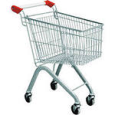

A. a carton of milk
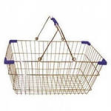 |
 B. a shopping basket
B. a shopping basket
C. chicken nuggets
 D. a checkout till
D. a checkout till
 |
E. a shopping trolley
F. a fruit pie
Exercise 5: Look at the words below and put them in each space in the sentences. In some sentences you may need more than one word:
lettuce debit card bagged aisles cooked meat
1. The things you buy in a supermarket are found in the _______.
2. You can use a _______ to pay for your shopping.
3. The _______ is sold in the delicatessen.
4. You will find _______ in the fresh fruit and vegetables section.
5. After you buy them your groceries are _______ for you to take away.
At the Clothing Department Store
Text A:
I have some shopping to do today. I want to go to the department store and buy a jumper.
At the counter:
-
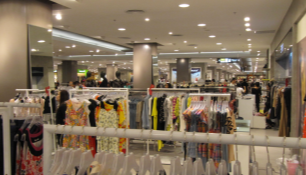 Hello!
I'd like to buy a jumper. I see that you've got a wide choice of jackets,
sweaters and jumpers. They are really very nice. Please, help me to find
something for me. I don't know the latest fashion and I hope that you can
recommend me something really fashionable. My size is 40. I like to wear loose
cloths. And I'd like a loose jumper.
Hello!
I'd like to buy a jumper. I see that you've got a wide choice of jackets,
sweaters and jumpers. They are really very nice. Please, help me to find
something for me. I don't know the latest fashion and I hope that you can
recommend me something really fashionable. My size is 40. I like to wear loose
cloths. And I'd like a loose jumper.
- What about the colour? I'd like something bright. I don't like the brown colour. I look very pale in brown cloths. Blue or red will do better. And I'd like a jumper made of wool.
-
![]() Will this one suit
me? I like the colour and the cut. It is very soft. And that jumper with an
ornament is very pretty.
Will this one suit
me? I like the colour and the cut. It is very soft. And that jumper with an
ornament is very pretty.
- I'd like to know your opinion. Are ornaments fashionable this season? I want to try these two jumpers on. Where can I do it?
- Thank you very much. Both jumpers suit and fit me. Now I know that the proverb 'The tailor makes the man' is true. But I'm in two minds. I don't know which jumper to buy: the plain one or the ornamented one. If you recommend me the ornamented jumper I'll take it.
- Thank you very much for your advice. Where can I pay?
Text B:
Store Clerk: Hi. Welcome to Angie's. Can I help you find something or are you just looking?
Marianne: I'm not sure. Aren't you having a sale right now?
Store Clerk: Everything on these two racks over here is on sale.
Marianne: Thanks. Oh, this sweater is nice, but looks a little big. Do you have this in a smaller size?
Store Clerk: Let me look. Oh, here's one. Would you like to use the fitting room to try it on?
Marianne: Sure. Thanks.
...a little later...
Store Clerk: How did it fit?
Marianne: Not too bad. I think I'll take it.
Store Clerk: Great. (She takes it off the hanger) How would you like to pay?
Marianne: Well, I'm almost maxed out on my credit card, so I think I'll pay with a check.
Store Clerk: Okay, with tax it comes to $24.93.*
Marianne: Who should I make the check out to?
Store Clerk: Angie's.
Marianne: Here you are.
Store Clerk: Can I see some I.D. too, please?
Marianne: Sure, here is my driver's license.
Store Clerk: Thanks. Here you go. Enjoy your sweater. And have a nice day.
Marianne: Thanks. You too.
__________________________________________________________
* You pronounce this - twenty-four dollars and ninety-three cents, OR you can say twenty-four ninety-three if everyone already knows you are talking about money.
Exercise 1: Guess the meaning of the following international words:
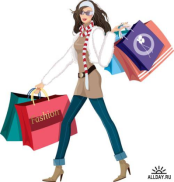
Jumper, jacket, sweater, ornament, season, credit card, check.
Exercise 2: Give the Russian equivalents for the words below:
![]() a) Department store, (latest)
fashion, fashionable, size, loose, wool, to suit, to try
on, to fit, fitting room, tailor, to be in two minds, sale, tax
a) Department store, (latest)
fashion, fashionable, size, loose, wool, to suit, to try
on, to fit, fitting room, tailor, to be in two minds, sale, tax
b) shirt, socks, skirt, coat, tie, underpants, blouse, cap, sandals, vest, shorts, trousers, jeans, shoes, dress, tights, swimsuit, stockings, knickers, hat, trainers, T-shirt, boots, tracksuit, bra, belt, zip, pocket, laces, sleeve, button, heel
Exercise 3: Find the articles of clothing hidden in this grid:
|
C |
Q |
B |
L |
B |
L |
O |
U |
S |
E |
|
O |
N |
S |
H |
O |
O |
D |
S |
C |
V |
|
A |
T |
G |
L |
O |
V |
E |
K |
A |
M |
|
T |
I |
G |
H |
T |
S |
T |
I |
E |
U |
|
N |
J |
X |
A |
S |
H |
I |
R |
T |
D |
|
P |
A |
N |
T |
S |
O |
F |
T |
Y |
R |
|
I |
C |
R |
B |
S |
E |
R |
V |
W |
E |
|
L |
K |
T |
R |
O |
U |
S |
E |
R |
S |
|
L |
E |
P |
A |
C |
O |
P |
S |
C |
S |
|
A |
T |
Z |
H |
K |
B |
K |
T |
O |
P |
Exercise 4: Find the definition of the following words:
belt, zip, pocket, laces, sleeve, button, heel
1. You tie them to keep your shoes on.
2. You fasten it to keep your trousers up.
3. You put your wallet and keys in it.
4. There are a row of them down the front of your shirt.
5. It's at the back of your shoe, and sometimes very high.
6. There are two on your jacket, and you put your arms in them.
7. You use it to fasten the front of your tracksuit top. It's made of metal.
Exercise 5: Put the following sentences into the right order:
1. He took off his jeans.
2. He put his shoes back on.
3. He tried on the trousers.
4. He went into the changing room.
5. He took them off.
6. He paid for the trousers.
7. He took off his shoes.
8. He went back to the sales assistant.
9. He put his jeans on again.
Text: Shopping the clothes
(Extract from the book by Sue Townsend "The Queen and I". Abridged)
Sayako came out of the changing room in Sloane Street* wearing this season's suit, as featured on the cover of English Vogue*. Last season's suit lay on the changing room floor in an untidy heap. She surveyed herself in the full-length mirror. The manageress, svelte in black, stood behind her.
“That colour's very good on you”, she said, smiling professionally.
Sayako said, “I take it and also I take it in strawberry and navy and primrose*”.
The manageress inwardly rejoiced. She would now reach this week's target*. Her job would be safe for at least another month. God bless the Japanese!
Sayako walked over on stockinged feet* to a display of suede loafers.
 “And these shoes to match all suits in size four”, she said. Her
role model was the fiberglass mannequin* which lolled convincingly
against the shop counter, wearing the same cream suit that Sayako was wearing,
the loafers that Sayako had just ordered and a bag that Sayako was about to
order in navy, strawberry, cream and primrose. The mannequin's blonde nylon wig
shone under the spotlights. Her blue eyes were half closed as though she were
captured by her own beauty.
“And these shoes to match all suits in size four”, she said. Her
role model was the fiberglass mannequin* which lolled convincingly
against the shop counter, wearing the same cream suit that Sayako was wearing,
the loafers that Sayako had just ordered and a bag that Sayako was about to
order in navy, strawberry, cream and primrose. The mannequin's blonde nylon wig
shone under the spotlights. Her blue eyes were half closed as though she were
captured by her own beauty.
She is so beautiful, thought Sayako. She took the wig from the mannequin's head and placed it on her own. It fitted perfectly.
“And I take this”, she said.
She then handed over a platinum card which bore the name of her father, the Emperor of Japan.
As the manageress tapped in the magic numbers from the card*, Sayako tried on a soft green-coloured suede coat which was also being worn by a red-haired mannequin. The suede coat cost one penny less than a thousand pounds.
“What other colours do you have this in?” asked Sayako of the assistants, who were packing her suits, loafers, bags and wig.
“Just one other colour”, said an assistant (who thought, Jesus, we'll have a drink after work tonight).
She hurried to the back of the shop and quickly returned with a toffee-brown version of the sumptuous coat*.
“Yes”, said Sayako. “I take both and, of course, boots to match, size four”. She pointed to the boots worn by the red-haired mannequin.
The pile on the counter grew. Her bodyguard standing inside the shop door shifted impatiently.
When the Princess and her purchases had been driven away, the manageress and her assistants screamed and yelled and hugged each other for joy.
Sayako sat in the back of the limousine and looked at London and its people. How funny English people are, she thought, with their wobbly faces and big noses and their skin! She laughed behind her hand. So white and pink and red. What bodies they had! So tall. It wasn't necessary to have so much height, was it. Her father was a small man and he was an Emperor.
As the car set off on its journey towards Windsor, where she was staying at the newly opened Royal Castle Hotel, Sayako's eyes closed. Shopping was so tiring. She had started at 10.30 in Harrod's lingerie department* and now it was 6.15 and she had only taken an hour off for lunch. And when she got home she had that puzzling book to read, Three Men in a Boat. She had promised her father she would read at least five pages a day. It would improve her English, he said, and help her to understand the English psyche.
She had already ploughed through The Wind in the Willows*, Alice in Wonderland and most of Jemima Puddleduck* but she had found these books very difficult, full of talking animals dressed in the clothes of human beings.
At Hyde Park Comer the car stopped suddenly, the driver swore and Sayako opened her eyes. The bodyguard turned around to face her.
“A demonstration”, he said. “Nothing to fear”.
She looked out of the window and saw a long line of middle-aged people crossing the road in front of the car. Many of them were wearing beige anoraks that Sayako, a devoted shopper, identified as coming from Marks and Spencer*. A few were carrying signs on sticks.
Nobody appeared to take any notice of them, apart from a few impatient motorists.
__________________________________________________________
Proper Names
Sue Townsend – Сью Таунсенд
Sayako – Саяко
Sloane Street – Слоун Стрит
Windsor – Виндзор
Harrod's – Хэрродз
Jemima Puddleduck – Джемайма Падлдак
Hyde Park – Гайд Парк
Marks and Spencer – Маркс и Спенсер
__________________________________________________________
Vocabulary Notes
1. Sayako came out of the changing room in Sloane Street ... – Саяко вышла из примерочной магазина на Слоун Стрит... (Прим.: Слоун стрит – улица Лондона, получившая известность благодаря расположенным на ней в изобилии изысканным магазинам).
2. ... as featured on the cover of English Vogue – ... точно таком же, как был на обложке английского издания «Воуг» (прим.: Vogue – журнал мод)
3. ... I take it in strawberry and navy and primrose – ... я беру такой же цвета клубники, темно-синий и бледно-жёлтый.
4. She would now reach this week's target – Теперь она непременно выполнит недельный план.
5. ... stockinged feet... – ... в одних чулках ...
6. Her role model was the fibreglass mannequin ... – Образцом для нее служил синтетический манекен ...
7. As the manageress tapped in the magic numbers from the card ... – Пока заведующая секцией пробивала в кассе магические цифры, перенося их с пластиковой карты ...
8. ... with a toffee-brown version of the sumptuous coat – ... с таким же роскошным пальто цвета кофе с молоком (Прим.: буквально – коричневый, как сливочная тянучка)
9. She had started at 10.30 in Harrod's lingerie department ... – Она начала в половине одиннадцатого с отдела женского белья в Хэрродз ... (Прим.: Хэрродз – крупнейший универмаг Лондона).
10. She had already ploughed through The Wind in the Willows ... – Она уже осилила «Ветер в Ивах» (Прим.: книга детского писателя К. Грэма).
11. Jemima Puddleduck – Джемайма Падлдак (Прим.: имя утенка из сказки Б. Поттер)
12. ... identified as coming from Marts and Spencer – ... определила, что они куплены в Маркс и Спенсер (Прим.: Маркс и Спенсер – известная сеть магазинов в Великобритании)
Exercise 1: Transcribe and pronounce correctly the words from the text:
Suit, to survey, manageress, inwardly, to rejoice, target, suede, loafer, fibreglass, mannequin, to loll, nylon, to encapture, platinum, toffee, version, sumptuous, bodyguard, to yell, limousine, wobbly, lingerie, psyche, to plough, anorak, to identify.
Exercise 2: Find the English equivalents for the following words and expressions:
Примерочная, костюм шестого размера, костюм прошлого сезона, зеркало в полный рост, цвет Вам идёт, я это беру, туфли в тон, манекен, прилавок магазина, недельный план продажи, заведующая, упаковывать, отдел дамского белья, стоить, покупки, отлично подходить, показать на что-либо, любительница покупок, собираться заказать.
Exercise 3: Reproduce the sentences in which the following words and phrases are used in the text:
To survey oneself in a full-length mirror, to be very good on somebody, to rejoice, to match, to be encaptured by something, to fit perfectly, to try on, to shift impatiently, to set off, tiring, to plough through, to be a devoted shopper, not to take any notice of something.
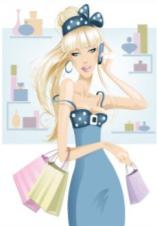
Exercise 4: Answer the questions:
What was Sayako trying on in the changing room?
Why did the manageress inwardly rejoice?
What attracted Sayako's attention in the shop?
How was the mannequin dressed?
What else did Sayako buy in the shop? In what colours?
How did the manageress and her assistants react when Sayako had left?
What did Sayako think about English people?
Was Sayako tired of shopping? Why?
What was Sayako reading? Was she reading for pleasure or not?
Exercise 5: Match the words on the left with their definitions on the right:
1. to loll A. correspond in quality, colour, design, etc.;
2. to rejoice B. change or move from one position to another;
3. to survey C. associate inseparably or very closely with smth.;
4. to hug D. show signs of great happiness;
5. to identify E. be of right measure, shape and size;
6. to match F. take a general view of smth.;
7. to order G. stand, sit or recline in a lazy attitude;
8. to fit H. squeeze tightly in one's arms, usually with affection;
9. to shift I. make a loud sharp cry (as of pain, excitement, etc.)
10. to yell J. command or direct.
Exercise 6: Speak about Sayako's shopping tour:
1. in the third person;
2. in the person of the manageress;
3. in the person of Sayako;
4. in the person of her bodyguard
Exercise 7: Agree or disagree with the following statements. Give your reasons:
 Use for disagreement: Use
for agreement:
Use for disagreement: Use
for agreement:
That's not quite right. That's right.
Oh no, quite on the contrary. Exactly.
It says in the text... I agree entirely.
1. Sayako was trying on the last season's suit.
2. The manageress felt irritated by the obtrusive customer.
3. Sayako admired the beauty of the mannequin.
4. Sayako was a devoted shopper, ready to buy clothes in bulk.
5. She didn't care how much money she spent on clothes.
6. The princess found English people funny.
7. Shopping didn't take her much time.
8. Sayako found English books entertaining.
Exercise 8: Find the English equivalents for the following words and expressions:
a) Примерочная; костюм шестого размера; костюм прошлого сезона; помещённый на обложке журнала; зеркало в человеческий рост; цвет Вам идёт; я это беру; полка, где выставлены уличные туфли; туфли в тон; манекен; прилавок магазина; недельный план продажи; заведующая; прожектор; собираться заказать; отлично подходить; быть в упоении; протянуть кредитную карточку; стоить; показать на что-либо; покупки; утомительный; отдел дамского белья; из магазина Маркс и Спенсер; любительница покупок; стоить без одного пенса тысячу фунтов; упаковывать.
b) Быть в упоении; прожектор; показать на что- либо; не обращать внимание; валяться на полу; внутренне возликовать; переминаться нетерпеливо с ноги на ногу; обниматься от счастья; отдохнуть часок за ланчем; психология англичан.
Pair work. Pick out 5 items your groupmate has that you admire. Make up dialogues in which you should compliment your groupmate. You can use the following phases:
That's a beautiful / pretty / nice / fantastic / great ... dress / coat … etc.
Those are really nice / pretty / good-looking ...
I really like your ... Where did you get it / them?
I like the colour / style / material ... You look good in ... (colour).
... is good on / suits / matches / goes well with you.
Discussion point
1. What kind of life do you think Sayako has?
РАЗДЕЛ 3. ВВЕДЕНИЕ В СПЕЦИАЛЬНОСТЬ
Text: Shopping in Great Britain
When you want to buy something you go to a shop or market. Some people are fond of shopping, others are not. But all of them go shopping now and then*.
In Britain buying food is usually done at the baker's, at the butcher's, at the sweet shop or at the greengrocer's. If you need either sugar or rice, you go to the grocer's. If you need fish, you go to the fishmonger's. At the dairy you can buy dairy products like milk or cream.
But nowadays shopping in supermarkets becomes more and more popular, because it’s convenient as they operate on the self-service system. It means you walk round the shop and choose what you want. You don' put goods into your bags before paying for them. You can use trolleys. At the exit you pay for all your goods at the cashier. Supermarkets don't close for lunch. If you are a traveller in Britain, you should know some shopping habits in the country. For example, you should remember that fish shops are closed on Mondays. You should know that sales are popular with British shoppers. They are held twice a year by shops and department stores to get rid of old stock*. Some of shops and supermarkets in Britain have got leading positions.
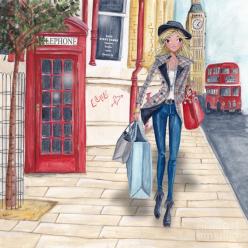 Sainsbury's
supermarkets are leaders in food and drink selling. These very big
supermarkets are for richer people who want to do shopping once a week or even
once a month. Tesco's supermarkets are leaders, too. But they've got a
different image*.
They
sell goods at lower prices. British Home Stores (BHS) is a
group of large shops selling mainly clothes but also food and other products
for the houses.
Sainsbury's
supermarkets are leaders in food and drink selling. These very big
supermarkets are for richer people who want to do shopping once a week or even
once a month. Tesco's supermarkets are leaders, too. But they've got a
different image*.
They
sell goods at lower prices. British Home Stores (BHS) is a
group of large shops selling mainly clothes but also food and other products
for the houses.
Buying clothes in Britain is a problem for Europeans, because they have different size system. Ready-made clothes departments in London usually use both British and European sizes on the tags.
There are some traditions about shopping in Britain. Mothers usually buy clothes for their small children, but British teenagers usually buy clothes by themselves. The British usually buy food in supermarkets once a week. The food shopping in most British families is usually done by mothers.
Don’t forget that the British use “Please” a lot. As for “thank you”, remember that in Britain in informal situations and in some shops, lots of people say “cheers” instead.
__________________________________________________________
Now and then – время от времени
To get rid of old stock – избавляться от старого товара
Image – репутация
Exercise 1: Guess the meaning of the following international words:
Rice, product, popular, leader, leading position.
Exercise 2: Give the Russian equivalents for the words word expressions below:
Baker – at the baker’s, butcher – at the butcher’s, sweet shop, greengrocer – at the greengrocer’s, fishmonger – at the fishmonger's, image, to pay, a tag, dairy, self-service system, exit, shopping habits, selling, ready-made clothes, cheers.
Exercise 3: Answer the questions:
1. What can you buy at the baker’s?
2. What can you buy at the butcher’s?
3. You buy sweets at the greengrocer’s, don’t you?
4. Where can you buy sour cream?
5. Where can you buy fish?
Exercise 4: Complete the sentences according to the text above:
1. Buying food is usually done at the …
2. 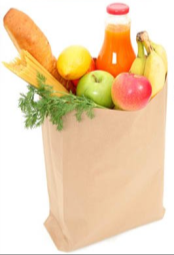 Shopping
in supermarkets …
Shopping
in supermarkets …
3. In the supermarket you …
4. If you are a traveller in Britain …
5. Sales are …
6. Sainsbury's supermarkets are …
7. Tesco's supermarkets sell …
8. British Home Stores is a group of …
9. Buying clothes is a problem because …
10. Ready-made clothes in London …
Exercise 6: Speak about shopping. Work in pairs:
1) Do you like shopping? Why / Why not?
2) What kinds of shops do you like? Why?
3) What kinds of shops don't you like? Why?
Exercise 7: Write a short essay on one of the following topics:
1. Why I Like/Do Not Like Shopping.
2. My Memorable Purchase/Gift.
3. My Method of Shopping.
4. Men's and Women's Shopping Styles.
5. Shopping Styles of the Young and the Elderly.
6. The Presents We Give and Are Given.
7. Why I Never Buy Things in the Market/Boutiques.
Shopping in London
(from "Spotlights on Britain " by S. Sheerin, G. Seath, G. White)
Most of London's big department stores are in Oxford Street and Regent Street. They are always crowded, but at sale times, in January and July, there are so many people that it is difficult to move and it is usually safer to go in the direction of the majority!
These days, it is often difficult to distinguish the goods in one large store from those in another. If you are looking for something "different" (but cannot afford the prices of Bond Street) it is certainly worth going to New Covent Garden. This used to be England's biggest fruit and vegetable market, but a few years ago, the market was moved to a new site on the other side of the River Thames. The old market, now called "New Covent Garden", was restored and converted into a shoppimg centre. There are now more than forty shops of many different kinds, and there are several places to eat and drink. The opening hours are different from most other shops: they open at 10 a.m. and close at 8 p.m. As well as shopping, there is entertainment with lunch-time theatre groups and classical, jazz, folk and pop music.
Kensington and Knightsbridge is an exclusive area of London. There you can find the department store that is the symbol of expensive and high-class living – Harrods. People say you can buy anything in Harrods, including wild animals – they even have a zoo which will sell you lion cubs as well as more common pets such as dogs, cats or parrots.
Exercise 1: Prepare to write a reproduction of the text.
Exercise 2: Read the e-mail letter and speak on the girl' impressions of shops in London:
To: Lilly
From: Mary
Subject: Shopping
London is a paradise for shoppers. With their large selection of goods, there are famous department stores like Harrods and Selfridges. You can also find designer shops, souvenir shops, wellstocked book shops, market stalls and many other kinds of shops. Second-hand shops are also popular with young people. I know what I am going to get for you-that's a surprise. But I don't know what to get for boys. Can you suggest some presents for them?
Drop me a line soon.
Answer the questions:

1. What kind of shops can everyone find in London?
2. What kind of shops are popular with young people?
3. Has Mary bought any presents for her friends?
4. Why does she call London a paradise for shoppers?
Role play:
Student A: You are a customer in a department store. You received a gift voucher for your birthday. It is for 3 items. You want to buy: 1. A Versace shirt – Size L. 2. A MaxMara T-shirt – Size L. 3. Frankie Morella trainers – Size 41.
Student B: You are a shop assistant in a department store. You have: 1. Versace shirts – Size S – M – L – XL. MaxMara T-shirtS – Size S – M – XL. Frankie Morella trainers – Size 36 – 38 – 42 – 44 – 46. You don’t have any size 40. Try to sell your partner smth else.
Text: Shopping in the USA
Shopping in the USA has two very important tendencies that can be determined as «Born to shop» and «Caveat Emptor » (the Latin expression that means «the customer runs risks of buying goods of inferior quality»). Stores are full of wares of various kinds and prices. If you are in funds shopping can be extremely interesting and bring you real satisfaction. In this case, you can find out that you are «born to shop».
 But on
the other hand, we can free the so called «Caveat Emptor». Purchasers have to
be careful. The owners of the shops put different kinds of advertisements and
offers like «sales» or «reduced prices» in order to decoy buyers and push the
articles. Of course, such signs attract people's attention. But before buying
something it is better to examine the label to be aware of validity of
commodities. Very often fashionable things can be made of cheap materials.
But on
the other hand, we can free the so called «Caveat Emptor». Purchasers have to
be careful. The owners of the shops put different kinds of advertisements and
offers like «sales» or «reduced prices» in order to decoy buyers and push the
articles. Of course, such signs attract people's attention. But before buying
something it is better to examine the label to be aware of validity of
commodities. Very often fashionable things can be made of cheap materials.
![]() In the
USA the price for the same goods in different shops can be different. High
prices do not always mean high quality. If you are going to buy expensive
things you would better to look in at several stores. It will give you the
opportunity to compare goods and make the best choice.
In the
USA the price for the same goods in different shops can be different. High
prices do not always mean high quality. If you are going to buy expensive
things you would better to look in at several stores. It will give you the
opportunity to compare goods and make the best choice.
There are many shops where even licensed articles (such as clock, cameras, videos, electrical appliances, etc.) are sold at a discount and their value results much cheaper than at the department stores. There’re similar clothes shops.
Shopping malls are typical for America where a lot of specialized stores and a big department store are joined in one building. There is also a restaurant and some food shops. There can be a movie hall as well so the clients can spend the whole day at the shopping mall. Clients usually pay cash or by credit cards. Customers are better to keep the receipt to be able to exchange the thing they bought in case of necessity or return it and get a refund.
Many stores organize special seasonal sales and experienced buyers are looking forward to visiting them. November and February is high time for reducing prices for winter clothes.
January and August are «white sales days» when towels and sheets are sold out. People learn about discount periods from the newspapers and thus can save a lot of money.
In the USA you can find very expensive department stores, the ones with more moderate and cheap prices. The difference in price is significant in these shops. If your American friend offers you to accompany you and go shopping together, you would better to tell him the sum of money you can afford to spend. He or she can advice you the right place to go.
Exercise 1: Guess the meaning of the following international words:
Tendency, risk, label, material, licensed, typical, special, specialized, restaurant, client.
Exercise 2: Give the Russian equivalents for the words word expressions below:
To determine; to run risks; inferior quality; goods / wares / articles / commodities; shopper / customer / purchaser / client; to be in funds; extremely; satisfaction; careful; to decoy; to attract smb.'s attention; to compare; discount; shopping mall; to pay (past paid, p.p. paid) in cash; moderate; significant
Exercise 3: Answer the questions:
1. What are the two very important tendencies about shopping in the USA?
2. When can shopping be extremely interesting and bring you real satisfaction?
3. Why do the purchasers have to be careful?
4. How is it possible to save some money if you are going to buy expensive things?
5. What is a shopping mall?
Exercise 4: In the sentences below only 3 variants are correct and the rest are wrong. Choose the correct words.
1. The ... was crowded with shoppers on the Saturday before Christmas.
A. shopping centre. B. shopping precinct. C. mall. D. kiosk. E. stall.
2. In department stores, customers are usually welcome to examine and try on ... .
A. goods. B. objects. C. articles D. merchandise. E. materials.
3. The meal was really ..., we got at least six courses — all for under £10.
A. a bargain. B. valuable. C. worthy. D. a good value. E. a value for money.
4. How much is your T-shirt? I got four for only $30. They were ... .
A. on sale. B. on offer. C. on display. D. going cheap. E. dear.
5. I can't imagine how she affords to send her kids to that school — it must....
A. cost the earth. B. be priceless. C. be costly. D. be expensive. E. be a money spinner.
6. Unless Jaguar can ... , they will soon be unable to compete on the American market.
A. cut the prices. B. give a discount. C. reduce prices. D. increase prices. E. raise prices.
7. We don't get many ... on Mondays — Saturday is our busiest day.
A. clients. B. merchants. C. vendors. D. shoppers. E. customers.
8. We ... a large selection of European wines.
A. stock. B. sell. C. retail. D. have on sale. E. wholesale.
9. It was difficult to choose from such ... of dishes on the menu.
A. a range. B. a selection. C. a choice. D. a mixture. E. a category.
10. Sales staff are trained to be ...
A. helpful. B. courteous. C. humble. D. knowledgeable. E. obtrusive.
Exercise 5: Translate into English:
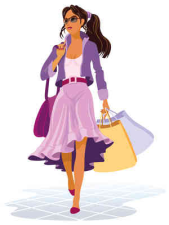
По дороге в супермаркет Бренда заметила яркую вывеску в витрине бутика: «Сезонные скидки». Бренда решила посмотреть, нет ли чего-нибудь подходящего. Она не была завсегдатаем распродаж, хотя и знала, что на вешалках с табличкой «Скидка 50%» можно найти только маленькие размеры. Разглядывая вещи, она случайно натолкнулась на блузку 14 размера. Она примерила её и та оказалась ей как раз впору. Бренда подумала, что эта блузка подойдёт к её любимой чёрной юбке. К тому же блузка была почти даром. Бренда заглянула в свой кошелёк и решила, что может позволить себе купить её. Больше не раздумывая, Бренда подала деньги продавцу.
Exercise 6: Write down the names of three major items you have bought recently. For each one, say whether you paid a lot, a little, or an average price, how long it took you to find the item. Then say what kind of shop you bought it in, and give reasons why.
Text: Shopping in Russia
Shopping is a significant part in everyday life of every person living in Russia. In every Russian city you will find numerous malls and supermarkets offering a great choice of goods from A to Z depending upon the customer's budget. World famous brands are represented in large shopping centers; in some Russian cities fashionable boutiques cover particular central streets and small blocks attracting customers attention by well designed shop windows with clothes, shoes and jewelry represented by exclusive brands. Luxurious brands become more and more popular among Russians. Young Russian designers are of great demand among those who are seeking for new look, fresh ideas and extraordinary style.
 Despite
the fact that large shopping centers are located not only on the city centers,
but in the suburbs, it is still hard to find an empty place at the parking lots
nearby.
Despite
the fact that large shopping centers are located not only on the city centers,
but in the suburbs, it is still hard to find an empty place at the parking lots
nearby.
Foreigners can notice that there are many small kiosks in Russia where one can find not only printed media (newspapers, magazines), but also chocolate, sweets, drinks and tobacco, therefore kiosks are very convenient for the people who are pressed for time and are unlikely to drop in at the supermarket during a busy day.
In Russia like in any other country shopaholics look forward to sales seasons: big sales are announced in January and July, mid-season sales are in late autumn and spring.
Many glossy magazines cover news from fashion industry and are popular among Russian ladies and gentlemen. These magazines provide useful up-to-date information about new arrivals and the latest tendencies in fashion. Perfume and cosmetics stores like «Ile De Beaute», «L'Etoile», «Rive Gauche» publish their own editorials with the news of make-up and perfume industries and recommendations of leading beauty experts.
Many stores accept payment both by credit card and in cash. Please be advised the only currency accepted in Russian stores is Russian rouble.
Internet shopping becomes more and more popular in Russia, it opens great opportunities for busy people working in large cities: customers are getting used to buying online, nevertheless the authentic human interest to touch, try and examine the goods prevails and does not let customers forget about the great feeling of pleasure they can get from the real shopping in the city malls.
Exercise 1: Guess the meaning of the following international words:
Budget, brand, boutique, kiosk, tobacco, chocolate, designer, shopaholic, perfume, cosmetics.
Exercise 2: Give the Russian equivalents for the words and word expressions below:
Shopping center, shop windows, clothes, shoes, jewelry, to be represented by, exclusive, luxurious, to be of great demand, fresh ideas, extraordinary style, printed media, convenient, sales seasons, make-up, internet shopping, payment, opportunity, to buy online, pleasure.
Exercise 3: Some women include shopping in their list of favourite activities. Men traditionally hate it. Here's what some of our compatriots think:

![]() Nina, 24: I love shopping,
but not on a Saturday or during the sales, when the shops are really crowded. I
prefer shopping alone. Buying things often takes me a long time because I never
buy the first thing I see. I always look around other shops to see if I can
find the same thing cheaper. I'm quite good at finding a bargain. I hate
shopping in large supermarkets, and prefer buying food in small shops or street
markets.
Nina, 24: I love shopping,
but not on a Saturday or during the sales, when the shops are really crowded. I
prefer shopping alone. Buying things often takes me a long time because I never
buy the first thing I see. I always look around other shops to see if I can
find the same thing cheaper. I'm quite good at finding a bargain. I hate
shopping in large supermarkets, and prefer buying food in small shops or street
markets.
Elena, 32: I like shopping, but it depends who I go with. Trying to shop with young children is a nightmare! I don't like shopping with my husband either because he's always in a hurry, and worries about spending money. But shopping with friends is fun, and I like going on my own too.

Kirill, 28: I don't really enjoy shopping. In fact it's a pain! I find it stressful because I'm always afraid of making mistakes. I've got a collection of awful 'mistakes' at the back of my wardrobe, which I never wear! But I don't mind going with my girlfriend, because she helps me choose. I think women are better at buying clothes than men. They've got better taste and they always know what's in fashion.
Ivan, 30: I'm not interested in shopping at all - in fact I hate it. My wife buys all my clothes and brings them home. I try them on and if I like them, I keep them. If not she takes them back. Choosing things from catalogues and the TV shopping channels is the only kind of shopping I enjoy.
Who said this?
1. I like going shopping on my own.
2. I prefer shopping alone.
3. The TV shopping channel is the only kind of shopping I enjoy.
4. I don't really enjoy shopping.
Exercise 4: Discuss your shopping habits:
1. What do you look for when you shop? Why?
2. What factors are important for you when you go shopping?
3. List the factors below in order of importance.
friendly service low prices
the quality of goods the design of the shop interior
the size of the shop brand name goods on sale
shops that aren't crowded nearby entertainment/cafe
Discussion point: Shopping is (not) an important human activity.
Text: Household goods
Household goods are goods and products used within households. They are the tangible and movable personal property placed in the living rooms, dining rooms, kitchens, family rooms, great rooms, bedrooms, bathrooms, recreation rooms, hallways, attics, and basements and other rooms of a house.
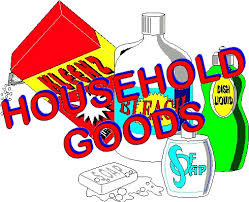 Examples
of household goods include air conditioners, baby items, baking dishes, beds / bedframes,
blankets, bedding, linens, books, towels, blenders, mixers, bookcases, bureaus,
dressers, can openers, wardrobes, cabinets, chairs, clothes dryers, coffee
makers, computers, cooking utensils, couches, sofas, love seats, sectionals,
sofa beds, curtains, drapes, curtain rods, decorative items, desks, dishes,
dishwashers, entertainment centers, fans, freezers, (drinking) glasses, hand
tools, hutches, irons and ironing boards, lamps, lawn chairs, (table) linens, rugs,
mattresses, (home) medical equipment, mirrors, microwave ovens, pillows, pots
and pans, sheets, refrigerators, sewing machines and notions, sofa futons, silverware
(flatware), sectionals, space heaters, stereos and radios, tables toasters and
toaster ovens, tools, towels, toys, televisions, vacuum cleaners, and
washer/dryers.
Examples
of household goods include air conditioners, baby items, baking dishes, beds / bedframes,
blankets, bedding, linens, books, towels, blenders, mixers, bookcases, bureaus,
dressers, can openers, wardrobes, cabinets, chairs, clothes dryers, coffee
makers, computers, cooking utensils, couches, sofas, love seats, sectionals,
sofa beds, curtains, drapes, curtain rods, decorative items, desks, dishes,
dishwashers, entertainment centers, fans, freezers, (drinking) glasses, hand
tools, hutches, irons and ironing boards, lamps, lawn chairs, (table) linens, rugs,
mattresses, (home) medical equipment, mirrors, microwave ovens, pillows, pots
and pans, sheets, refrigerators, sewing machines and notions, sofa futons, silverware
(flatware), sectionals, space heaters, stereos and radios, tables toasters and
toaster ovens, tools, towels, toys, televisions, vacuum cleaners, and
washer/dryers.
Businesses that produce household goods are organized into three sub-categories:
ü Consumer Electronics (Main products include radio receivers, television sets, MP3 players, video recorders, DVD players, digital cameras, camcorders, personal computers, video game consoles, telephones and mobile phones);
ü Appliances, Tools and House wares;
ü Home Furnishings (such as furniture).
Household goods are a significant part of a country's economy, their safety is often regulated by governments, which also promote and facilitate their import and export.
Exercise 1: Guess the meaning of the following international words:
Conditioner, blender, mixer, bureau, cabinet, computer, sofa, decorative, medical, lamp, electronics, stereo, radio, toaster, television, video, economy, import, export, to regulate.
Exercise 2: Give the Russian equivalents for the words and word expressions below:
(Hand) tool, appliance, house ware, baking dish, coffee maker, microwave oven, toaster oven, (drinking) glass, dishwasher, cooking utensil, can opener, silverware (flatware), pot, pan, refrigerator, (table) linen, bedding, blanket, mattresses, pillow, sheet, towel, (home) medical equipment, bookcase, dresser, wardrobe, clothes dryer, couch, loveseat, curtain, drape, hutch, entertainment center, fan, freezer, irons and ironing boards, lawn chairs, mirror, sewing machine and notions, space heater, vacuum cleaner, washer / dryer.
Exercise 3: Speak about your latest visit to the appliance shop. Say what you bought there, what the prices were, how much money you spent there.
Exercise 4: Read the dialogue and write down Mike’s shopping list. Act out the dialogue in pairs. Make up the similar dialogue. Make a shopping list of four items:
George: Are you going to the shops?
Mike: Yes, I need a new MP3 player.
George: Here’s a ten pound note. Oh, and can you get me new batteries for my radio?
Mike: Why can’t you go shopping yourself?
George: Because I’m lazy!
Exercise 5: Look at the pictures and read. Answer the questions below:
These are the best-selling items in Britain:
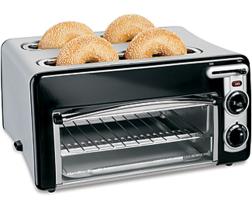
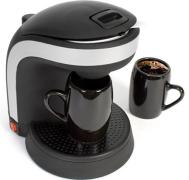
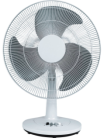

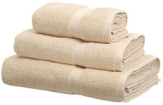
![]()
1. Why do the British buy these thins most?
2. Would you like to buy any of these things? Why?
3. Are they the best-selling things in your country as well?
4. Make a drawing of one of the best-selling items in Russia and write your advertisement for it.
Text: How to shop sensibly
Shopping is a normal pass time that we will all have done and can enjoy, here are a few things to know about shopping:
1. Take a friend. It's easier to make a decision on something when someone else is giving their opinion too. Bring along a friend or family member whom you trust; not only for their opinion, but to keep yourself safe. Besides, it's more fun shopping with a friend than alone.
2. Set a budget for yourself. It's hard, but it’s always better to set a budget and stick to it. It's better in the long run. If you have trouble doing this, leave your credit card at home and only bring cash. Bring an amount of cash that you're comfortable spending – if your spending limit is $50, bring $50 to spend! This ensures that you won't blow your money in one day.
3. Make a list of things you specifically need or want. This will prevent you from overspending or wasting time. Before you hit the stores, go on-line and look at the websites of your favourite stores. Find items that you like there, then write them down and find them in the store.
4. Go into stores. You should consider trying different stores (like boutiques). You never know what you'll find in that little unknown store. Maybe some new clothes or something you'd like to improve your style with. Just because "everyone" doesn't shop there doesn't mean it's a bad store; it might become one of your favorites! Thrift shops also have some surprises in them, if you really take the time to look around.
5. Find the stuff you like. Be careful before you buy them, though. 6. Check out the material. If you're buying something that you don't try on, like socks, always touch them before buying. Stick your hand in it, and see if it's itchy, or just right. Maybe there's a stain? Ask for another one that looks in better condition. Or perhaps it looks flimsy, or as if it will fall apart within months? It's better not to consider it. If you are allergic to some materials, read the label to see what it is made of beforehand.
7. Try the things you like on. Make sure the things that you're buying fit you properly. You should feel comfortable and yourself in your clothes. Try on many sizes before making a decision.
8. Check yourself out in the mirror. If the store has a three way mirror, it's always best to stand in it before purchasing. The jeans you're trying on could look great from the front, but saggy in the back.
9. Never be afraid to ask a faculty member for help. Love the shirt, but can't find your size? It's their job to help you, so don't be shy about asking the salespeople.
10. Don't buy something if you're not totally sure about it. Only buy something if you really love it and are willing to wear it. It's helpful to try to think of at least two things that you can wear it with too, just so that you know you'll have something to wear it with. If you aren't sure about that top, don't buy it. It's better to leave it rather than buy and regret it.
Exercise 1: Give the Russian equivalents for the words and word expressions below:
To spend, overspending, to set a budget, to try on, thrift shop, stuff, to fit, to feel comfortable, to make a decision, (three way) mirror, purchasing, salespeople, to wear, from the front, from the back.
Exercise 2: Translate the following quotations and comment upon them:
Cato the Elder: “Do not buy what you want, but what you need; what you do not need is dear at a farthing”.
Stephen Butler Leacock: “Advertising may be described as the science of arresting the human intelligence long enough to get money from it”.
Idioms connected with shopping
To buy lemon – to buy something that turns out to be useless: I suggest that you take a closer look at the bike before you buy it. You don’t want to buy a lemon, do you?
To buy a pig in a poke – to buy something without taking a look at it: I told you to look inside the box before buying this camera. You bought a pig in a poke again!
To pay over the odds; to pay through the nose – to pay too much for something: You paid over the odds for that blouse. The fabric is rather of poor quality.
For a song – to buy something at a very low price: This dress is very beautiful. It’s hard to believe that you bought it for a song.
 To go
window-shopping – to look at goods in store windows, with no aim of buying
anything: I never go window-shopping, because when I see something really
beautiful I always regret not having enough money to buy it.
To go
window-shopping – to look at goods in store windows, with no aim of buying
anything: I never go window-shopping, because when I see something really
beautiful I always regret not having enough money to buy it.
To shop around for something – to look for something in different shops to compare the products and their prices in order to choose the best offer: Before you buy something expensive that you are going to use for years, it is reasonable to shop around first and choose the best product.
To shoplift – to steal something from a shop: Since there is a monitoring system in almost every shop, teenagers are caught shoplifting more often than before.
To shop till you drop – to go shopping for a very long time: She shopped till she dropped yesterday again. I’m wondering if she is already a shopaholic.
A retail therapy – going shopping in order to feel better, to be in a better mood: I bought a new pair of jeans, three blouses and a nice dress yesterday. Such a retail therapy was something that I really needed after the long, exhausting day.
To own brand – when a company makes and sells its own products: Marks and Spencers only sell own brand goods.
To pay over the odds – to pay too much for something: She definitely paid over the odds for that dress.
Exercise 3: Dramatize the situation "At a Shop":
Student A: You want to buy some clothes but you can't decide what to buy. Ask the assistant for help, try on the clothes. Explain why you don't want them.
Student B: You are the shop assistant. You serve the customer and suggest what to buy. Discuss prices, sizes, colours. Try to persuade the customer to buy something and make a sale.
For student A: For student B:
Can you wait on me? Can I help you?
Can I get... here? Are you being served?
I'm looking for... What size ... do you take?
What colours have you got it in? This one is on sale.
Have you got it in red? It's only ...
Would you measure me, please? You won't find a better bargain in town.
Have you got this in size ... ? I'm afraid we are out of them at the moment.
It doesn't fit. We are expecting more in, maybe next week.
It's too tight / loose. Any particular colour?
Could I have the next size up / down? Would you like to try it on?
Can I try it on? Does it fit?
I don't like it. Would you like to try a bigger / smaller size?
Can I see something else? This one comes in grey, brown and blue.
No, thanks. I'll leave it.
I'll take / have it.
Thank you for your help.
Exercise 4: Give a talk on the subject "How to shop sensibly". Include the following points – which shop to check out / what to wear / what bag to take. Make use of the following words and phrases:

to be a devoted shopper to afford
to be a spendthrift t/a big spender to be extravagant
to spend / waste money on to cost the earth
Give your advice. Use the following structures:
I advise you to ... Have you thought of ...
(I think) you'd better / should ... It might be a good idea to ...
Why don't you ... I wouldn't advise you to ...
You'd better not...
Text: At the grocery. Shopping for one
(A story by Anne Cassidy. Abridged)
Groceries are much the same the world over – especially the queues at check-out points. What extraordinary things other people are buying! There are odd snatches of overheard conversation too. But what if one is living alone, “Shopping for one?”
“So what did you say?” Jean heard the blonde woman in front of her talking to her friend.
“Well,” the darker woman began, “I said I'm not having that woman there. I don't see why I should. I mean I'm not being old-fashioned but I don't see why I should have to put up with her at family occasions*. After all...”
Jean noticed the other woman giving an accompaniment of nods and headshaking at the appropriate parts*. They fell into silence and the queue moved forward a couple of steps.
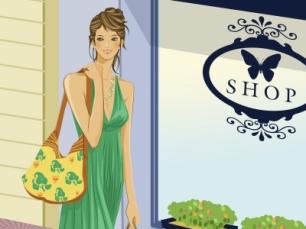 “After all”, the dark woman resumed her conversation, “how would it
look if she was there when I turned up?”* Her friend shook her head slowly from
side to side and ended with a quick nod.
“After all”, the dark woman resumed her conversation, “how would it
look if she was there when I turned up?”* Her friend shook her head slowly from
side to side and ended with a quick nod.
Should she have got such a small size salad cream? Jean wasn't sure. She was sick of throwing away half-used bottles of stuff.
“He came back to you after all”, the blonde woman suddenly said. Jean looked up quickly and immediately felt her cheeks flush. She bent over and began to rearrange the items in her shopping basket.
“On his hands and knees”, the dark woman spoke in a triumphant voice. “Begged me take him back”.
She gritted her teeth together. Should she go and change it for a larger size? Jean looked behind and saw that she was hemmed in by three large trollies. She'd lose her place in the queue. There was something so pitiful about buying small sizes of everything. It was as though everyone knew.
“You can always tell a person by their shopping*”. She looked into her shopping basket: individual fruit pies, small salad cream, yoghurt, tomatoes, cat food and a chicken quarter.
The cashier suddenly said, “Make it out to J. Sainsbury PLC”. She was addressing a man who had been poised and waiting to write out a cheque for a few moments. His wife was loading what looked like a gross offish fingers* into a cardboard box marked "Whiskas". It was called a division of labour.
Jean looked again at her basket and began to feel the familiar feeling of regret that visited her from time to time. Hemmed in between family-size cartons of cornflakes and giant packets of washing-powder, her individual yoghurt seemed to say it all*. She looked up towards a plastic bookstand which stood beside the till. A slim glossy hardback caught her eye. The words Cooking for One screamed out from the front cover. Think of all the oriental foods you can get into*, her friend had said. He was so traditional after all. Nodding in agreement with her thoughts Jean found herself eye to eye with the blonde woman, who gave her a blank, hard look and handed her what looked like a black plastic ruler with the words "Next customer please" printed on it in bold letters. She turned back to her friend. Jean put the ruler down on the conveyor belt.
“Of course, we've had our ups and downs*”, the dark woman continued, lazily passing a few items down to her friend.
Jean began to load her food on to the conveyor belt. She picked up the cookery book and felt the frustrations of indecision. It was only ninety pence but it seemed to define everything, to pinpoint her aloneness, to prescribe an empty future. She put it back in its place.
“So that's why I couldn't have her there you see”, the dark woman was summing up. The friends exchanged knowing expressions and the blonde woman got her purse out of a neat leather bag. She peeled off three ten pound notes and handed them to the cashier.
Jean opened her carrier bag ready for her shopping. She turned to watch the two women as they walked off, the blonde pushing the trolley and the other seemingly carrying on with her story.
The cashier was looking expectantly at her and Jean realized that she had totalled up. It was four pounds and eighty-seven pence. She had the right money, it just meant sorting her change out. She had an inclination that the people behind her were becoming impatient. She noticed their stack of items all lined and waiting, it seemed, for starters orders*. Brown bread and peppers, olive oil and, in the centre, a packet of beefburgers.
She gave over her money and picked up her carrier bag. She felt a sense of relief to be away from the mass of people. She felt out of place*.
Walking out of the door she wondered what she might have for tea. Possibly chicken, she thought, with salad. Walking towards her car she thought that she should have bought the cookery book after all. She suddenly felt much better in the fresh air. She'd buy it next week. And in future she'd buy a large salad cream. After all, what if people came round unexpectedly?
__________________________________________________________
Proper Names
J. Sainsbury PLC – компания Джей Сэйнсбери (прим.: PLC – Privately Licensed Company – частная лицензированная компания)
__________________________________________________________
Vocabulary Notes
1. ... why I should have to put up with her at family occasions. – ... с какой стати я должна мириться с её присутствием на семейных праздниках.
2. ... giving an accompaniment of nods and headshaking at the appropriate parts. – ... в такт словам то кивала, то качала головой.
6. ... when I turned up? ... когда я бы вдруг пришла?
7. You can always tell a person by their shopping. – Всегда можно определить, что за человек перед тобой, по его покупкам.
8. ... a gross of fish fingers ... – ... оптовая закупка рыбных палочек ...
9. ... her individual yoghurt seemed to say it all. – ... казалось, что её единственная упаковка йогурта говорит сама за себя.
10. Think of all the oriental foods you can get into ... – Как подумаешь, каких только ни бывает восточных продуктов ...
11. Of course, we've had our ups and downs ... – Конечно, у нас бывало то лучше, то хуже ...
12. ... for starters orders. – ... сигналов стартеров.
13. She felt out of place. – Ей было не по себе.
Exercise 1: Give the Russian equivalents for the words below:
Queue, extraordinary, accompaniment, appropriate, couple, to itch, wire, elephantine, giant, carton, casualty, stuff, rearrange, triumphant, trolley, maxim, yoghurt, quarter, cashier, to poise, cheque, gross, oriental, conveyor, dejectedly, salmon, processed, purse, leather, to total.
Exercise 2: Answer the questions:
1. Whom did Jean hear talking in the queue?
2. Why was Jean's patience beginning to itch?
3. Why couldn't Jean go through the quick till?
4. When did Jean begin to rearrange the items in her shopping basket?
5. Was Jean the last in the queue or not?
6. What did Jean see in her own shopping basket?
7. Whom did the cashier suddenly address?
8. What caught Jean's eye suddenly? Why?
9. What did Jean remember about the shopping trips with her friend?
10. Why did Jean put the book back in its place?
11. How much did the blonde woman pay?
12. Did Jean see the two women leave the shop or not?
13. How much did Jean pay?
14. Why did Jean think that people behind her were becoming impatient?
15. What did Jean feel after she had left the grocery?
Exercise 3: Find the English equivalents to the following words or expressions:
a) Снять с полки; лента конвейера; поменять на что-либо большего размера; заплатить; продвинуться на пару шагов; перекладывать покупки; большие упаковки; походы по магазинам; найти мелочь; беготня; потерять свою очередь; выкладывать продукты на конвейер; пройти через экспресс-кассу; насчитать десять покупок; определить, что за человек, судя по его покупкам; передавать кому-либо покупки; отсчитать три банкноты; подсчитать общую сумму; оптовая закупка; выписать чек (два варианта); отдать деньги кассиру; груда покупок.
b) Мириться с чьим-либо присутствием; семейные праздники; замолчать; на дне (корзины); качать головой; в конце концов; сжать зубы; любимая поговорка; разделение труда; время от времени; попасться на глаза; мыльная опера; бывало то лучше, то хуже; продолжить рассказ; смотреть выжидающе; почувствовать облегчение; ей было не по себе; почувствовать себя намного лучше на свежем воздухе; в будущем.
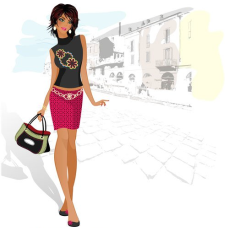 Exercise 4: Work in pairs. Discuss
with your partner some interesting shopping experience. Use at least five expressions
from the list below:
Exercise 4: Work in pairs. Discuss
with your partner some interesting shopping experience. Use at least five expressions
from the list below:
To fall into silence, to be sure, to be sick of throwing away something, to feel one's cheeks flush, on one's hands and knees, to grit one's teeth together, to look behind, from time to time, to scream out from the front cover, foods one can get into, after all, eye to eye, to give a blank look, to hand somebody something, bold letters, to fire questions, a soap opera, ups and downs, to sum up, to carry on with the story, to have the right money, a sense of relief, to be away from, to feel out of place, to feel better in the fresh air, to come round unexpectedly, to catch one's eye.
Text: At the clothing store
 In England
most shops open from 9 a.m. to 5.30 p.m. on Monday to Saturday, although some
stay open much later especially in London and other large cities. In small
towns and villages many shops close early on Wednesdays. Not many shops stay
open on Sundays.
In England
most shops open from 9 a.m. to 5.30 p.m. on Monday to Saturday, although some
stay open much later especially in London and other large cities. In small
towns and villages many shops close early on Wednesdays. Not many shops stay
open on Sundays.
Besides cash, a lot of shops accept plastic cards. Some may also accept Eurocheques.
One day one of the customers went to clothing department store in the centre of London.
Here is her talk with the shop assistant:
Customer: Excuse me.
Shop Assistant: Can I help you?
Customer: Yes, I’m looking for a sweater.
Shop Assistant: How about this one?
Customer: Yes, that’s nice. Can I try it on?
Shop Assistant: Certainly, there’s the fitting rooms over there
Customer: Thank you.
Shop Assistant: How does it fit?
Customer: It’s too large. Have you got a smaller one?
Shop Assistant: Yes, here you are.
Customer: Thanks. I like this sweater, but have you got it in blue?
Shop Assistant: Wait a second. I’ll just check. Here you are.
Customer: Thank you. That’s fine. How much is it?
Shop Assistant: It costs $40.
Customer: Are there any discounts?
Shop Assistant: Yes, a 10% off for today.
Customer: Great! I’ll take it.
Shop Assistant: OK, how would you like to pay?
Customer: Do you take credit cards?
Shop Assistant: Yes, we do. Visa and Master Card.
Customer: OK, here’s my Visa.
Shop Assistant: Thank you. Have a nice day!
Customer: Thank you, bye.
Retell the dialogue, as if you were one of the participants.
Exercise 1: Give the Russian equivalents for the words below:
a) Clothing store, to (stay) open, cash, Eurocheque, fitting room, discount.
b) blouse, brooch, tiara, clogs, leggings, trainers, collar, mittens, tights, cravat, trunks, shawl, cufflinks, waistcoat.
Exercise 2: Below are extracts from two shopping conversations. Decide whether each sentence is from Conversation 1 or 2:
Conversation 1 – A customer calling a website's customer service representative.
Conversation 2 – A customer and a shop assistant talking in a shop.
Shopping Phrases
It arrived in a damaged box. Here's your receipt.
When I tried it to use it, it wouldn't work. I'll take it.
I was charged for something I didn't buy. It's on special offer.
How would you like to pay? I paid by credit card.
I'd like a refund please. It's a bargain.
An extra charge has appeared on my statement. In cash, please.
Exercise 3: Fill in the dialogue with the given words:
fit this size take try help medium
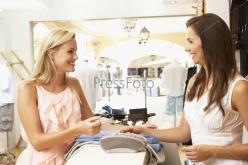 Shop
assistant: Hello! Can I _______ you?
Shop
assistant: Hello! Can I _______ you?
Customer: Yes, please. Have you got _______ T-shirt in pink?
Shop assistant: Yes. What _______ are you?
Customer: I’m _______.
Shop assistant: _______ this one on.
A little later:
Shop assistant: Does it _______?
Customer: It’s perfect. I’ll _______ it.
Exercise 4: Have you ever had problems like these? What did you do?
1. Your blouse has shrunk.
2. The zip doesn't work.
3. The strap has broken from the side.
4. Your pullover has stretched.
5. Your dress has come apart at the seams.
In pairs take turns to imagine yourself in the following situations. Make use of the phrases below:
For complaining:
I'm sorry but ...
I'm afraid ...
I'm sorry to have to complain but...
For apologizing and offering to put things right:
I'm very / awfully sorry ... I do apologize. I'll...
All right, I'll see what I can do. Sorry about that, I'll...
For accepting or refusing offers:
Thank you very much. That's very kind of you. I suppose that'll be all right.
Thank you. That's just not good enough ...
No, that's quite unacceptable. I'll never ...
Exercise 5: Complete the following dialogue using the sentences given below:
Dialogue 1: At the women's clothes department
It's two sizes too large.
I'm just looking around.
May I hope that we can be of service to you again in the future, sir?
We've run out of the size.
You won't find a better bargain in town.
I think a wool single-breasted suit is a good bet for the season.
Assistant: Can I help you?
Customer: No thank you. ...
Assistant: We have suits on sale. ...
Customer: Which suit do you think is better?
Assistant: ... It's warm and comfortable.
Customer: I'm afraid it's loose on me. ... Have you got a smaller size?
Assistant: I'm awfully sorry. ... The suits proved to be so popular that we sold out of them last week but we might have some more next week.
Customer: Well, thank you.
Assistant: ...
Customer: Maybe I'll come back later.
Assistant: You're welcome. Come again!
Dialogue 2: At the millinery department
What size do you take?
Would you like me to measure your head?
It's smoother leather.
It goes with my clothes.
Thank you for the purchase.
What sort of hat do you require? Felt, leather, the one with feathers or with a brim?
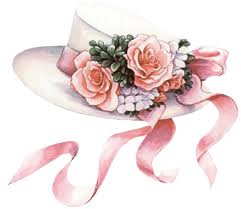 Customer: I'd like to buy the hat in the window.
Customer: I'd like to buy the hat in the window.
Assistant: There are several hats in the window. ...
Customer: Can you show me the one over there? The leather one.
Assistant: Ah! The leather one. Now, this is another leather hat, madam. It's better than the one in the window. ...
Customer: I'd rather have the one in the window. ... Assistant: Certainly, madam. ...
Customer: I'm not sure.
Assistant: ... It is sixteen and a half.
Customer: Thank you very much.
Assistant: ...
Exercise 6: Have you ever had problems like these? What did you do?
1. Your blouse has shrunk.
2. The zip doesn't work.
3. The strap has broken from the side.
4. Your pullover has stretched.
5. Your dress has come apart at the seams.
In pairs take turns to imagine yourself in the following situations. Make use of the phrases below:
For complaining: For apologizing and offering to put things right:
I'm sorry but ... I'm very / awfully sorry ... I do apologize. I'll...
I'm afraid ... All right, I'll see what I can do. Sorry about that, I'll...
For accepting or refusing offers:
Thank you very much. That's very kind of you. I suppose that'll be all right.
Thank you. That's just not good enough ...
No, that's quite unacceptable. I'll never ...
Exercise 7: Interview your partner and write their answers to the questions about clothes and style:

1. What kind of clothes do you like?
2. Describe your favourite item of clothing.
3. What item of clothing would you never wear?
4. What do you wear to polytechnic?
5. What colour do you like to wear?
6. What is the best fashion advice you’ve been given?
7. What style of clothing is in-trend at the moment?
8. What do you normally wear to a party or for going out?
9. What are your favourite shops or clothes designers?
10. Is there a hairstyle you would never have?
Exercise 8: Replace the gaps with one of the following verbs:
to fit to suit to match to become to go with / together
1. I'm sure you'll be able to find a suitable dress that... . You are a standard size.
2. “I don't think this dress... me. I'd prefer something lighter”.
“Oh, no. I love you in that dress”.
3. The jacket ... her like a glove. It looked as if it had been made for her.
4. In the lounge everything ... the curtains: the sofa, the carpet and the cushions.
5. “Do you think this sweater and this skirt ... ?”
“ No, not really, the colours don't quite ....”
6. This dress doesn't ... her. It's tight in the waist.
7. For every outfit, Diana has a handbag and shoes ... .
8. Helen was trying on her pearls to see if they ... her yellow dress.
9. It's funny but the yellow walls and the black floor actually ... quite well.
10. She has exquisite taste for clothing. Everything she wears ... without fail.
Text: Buying shoes and clothes
Barbara: Today I’d like to buy shoes and gloves for me. Where can I buy a good modern coat?
 Jennifer: There
is a large new department store in our district. There is a rich choice of
coats there. Last month I bought a beautiful yellow coat for my daughter there.
She is eighteen now and likes trendy clothes.
Jennifer: There
is a large new department store in our district. There is a rich choice of
coats there. Last month I bought a beautiful yellow coat for my daughter there.
She is eighteen now and likes trendy clothes.
Barbara: Is there a good shoe department in this new department store?
Jennifer: The choice of quality shoes is not bad there, but the shoe department is not very large. If you need shoes you can go to the Central City Department store. There are many different shoe departments in this department store.
Barbara: I don`t know my English sizes. German sizes differ from English ones. And my size usually limits the choice.
Jennifer: It is not a problem. The salesgirl will help you giving size and fit information. You might have luck with your size there.
Barbara: I`m also looking for a new evening dress. You are right. I`ll visit both department stores today. May be I will find an evening dress, too.
Jennifer: I like the shoe shop in Madison Avenue. I recommend you to go there, too. There is a great choice of modern shoes there.
Barbara: Thank you very much.
Jennifer: Not at all.
Retell the dialogue, as if you were one of the participants.
Exercise 1: Match the two halves of each expression:
1. modern A. dress
2. evening B. clothes
3. trendy C. store
4. shoe D. department
5. quality E. coat
6. department F. shoes
Exercise 2: What are these pictures?
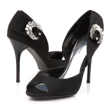
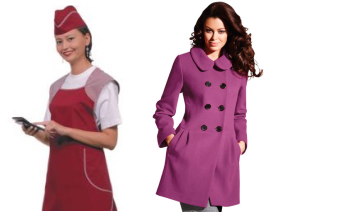
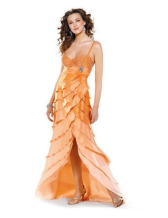
Evening dress
Coat
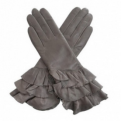 |
Gloves
Shoes
Salesgirl
Exercise 3: Complete the following dialogue using the sentences given below:
At the shoe department
1. They will give a little after wearing.
2. Have you got them in a wider fitting?
3. Can you wait on me?
4. How do they fit, madam?
5. Would you like to see another similar style?
6. What kind of shoes do you want, madam?
Customer: Excuse me. ...
Assistant: Certainly, madam. What can I show you?
Customer: I'd like to buy a pair of fancy dress shoes.
Assistant: ... Leather, suede, glace or I can offer you glitter stiletto shoes.
Customer: I like them. Can I try them on?
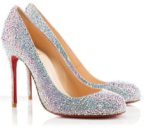 Assistant:
Certainly. ...
Assistant:
Certainly. ...
Customer: They're a bit tight. I have rather a broad foot and a high instep. ...
Assistant: I'm afraid not in that style. ...
Customer: Then, probably, leather shoes are better ...
Assistant: Yes, they'll stretch.
Customer: Very well then. Thank you for your help.
Assistant: You're welcome.
Exercise 4: Work with a partner. Take turns to be the shop assistant and the customer and make up your own dialogue. Use the phrases below:
I’m looking for a / some …..
What size are you? – Large / Medium / Small
Can I try it on?
Where are the changing rooms?
It’s too big / small / long / short / tight.
Have you got something a little smaller / bigger / longer / shorter?
I’ll take it.
Do you take credit cards?
Exercise 5: Translate into English:
Не успела Бренда выйти из магазина с новой отличной покупкой, как у неё отлетел каблук. А она купила туфли в этом месяце. Бренда направилась в обувной магазин, твердо решив обменять их. Продавец был готов обменять туфли, но в продаже не было обуви этой модели. Бренда провела полчаса в магазине, примеряя каждую пару своего размера. Но никакие туфли ей не подходили: одни были слишком широки, другие жали, у третьих был слишком высокий каблук. Единственные туфли, которые ей понравились, были слишком дорогие. Продавец посоветовал ей зайти на следующей неделе, когда они получат новый товар.
Материалы на данной страницы взяты из открытых источников либо размещены пользователем в соответствии с договором-офертой сайта. Вы можете сообщить о нарушении.